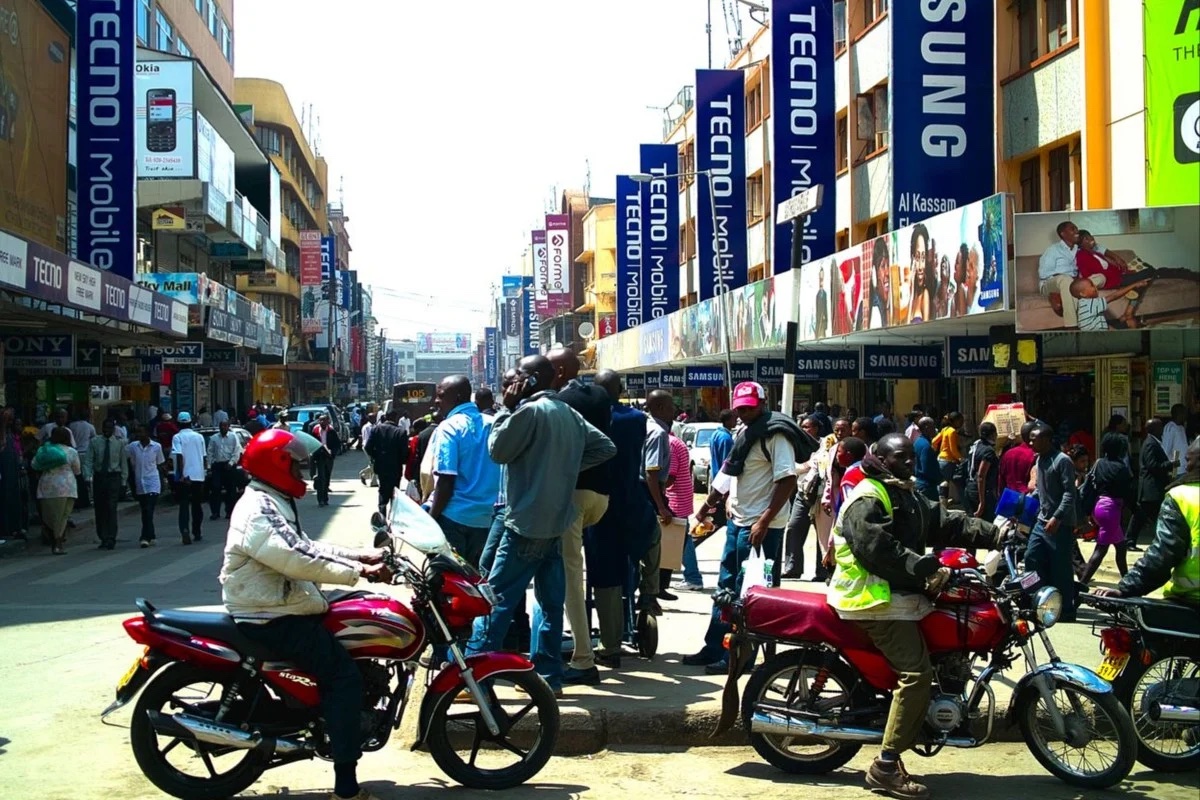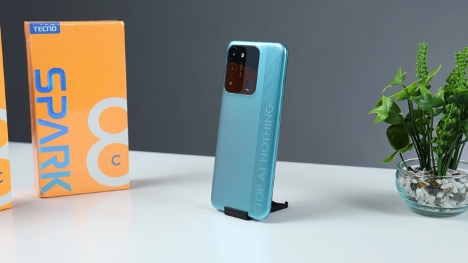
Colorful billboards of the best-selling smartphone brands in Africa – Tecno, Infinix, and iTel – are displayed in front of shops in the bustling shopping district of Nairobi, the capital of Kenya. All three brands are produced in China. However, most mainland Chinese people have never heard of them. In fact, Tecno, Infinix, and iTel have never been sold in this populous country.
All three smartphone brands are manufactured by Transsion – a company based in Shenzhen specializing in phone sales in Africa. Tecno, Infinix, and iTel are also expanding into other markets such as Latin America, India, Eastern Europe, and Southeast Asia.
Transsion has been very successful in its business strategy. In 2023, the company’s Tecno brand sold more smartphones in the Middle East and Africa than Samsung or Apple.
This is a feat that helps solidify China’s technological diplomacy in the region, attracting more and more Chinese tech companies to Africa and the Middle East.
According to data from Hong Kong-based Counterpoint Research company, Tecno’s smartphone sales increased by 77% compared to the same period last year in the fourth quarter, surpassing Samsung to top the Middle East and Africa region for the first time.
During the same period, Tecno’s smartphone shipment market share increased to 20% from 15% in 2022. Meanwhile, Samsung’s market share decreased from 24% in 2022 to 18%.
According to Counterpoint, Tecno’s growth is driven by $150 smartphones. Models like the Tecno Pop 7 and Camon 20 Pro are popular with consumers.

Affordable smartphones like this Tecno Spark 8c are the key to Transsion’s success. Photo: Shutterstock
According to Yang Wang, a senior analyst at Counterpoint Research, economic factors may also contribute to Transsion’s success in 2023. He said this growth is mainly driven by much better macroeconomic conditions, with lower inflation and energy prices, while African currencies are stable in most countries.
Wang said this has had a significant impact on boosting consumer confidence, especially among low-income individuals.
“Transsion’s brands benefit most from these ‘tailwinds’ as they invest heavily in the mid-range to affordable smartphone segment, among the largest brands in Africa,” Wang said.
Affordable products are an important part of the company’s success. Looking at sales figures in Africa, Tecno surpassed Samsung in 2020. This is largely due to the successful launch of low-priced smartphones and marketing efforts in the market.
Wang said Tecno has continued to invest in marketing and distribution, as well as ambitious plans to launch premium smartphones – such as foldable phones – to enhance the brand’s reputation among consumers.
Indeed, this is an effective strategy. Transsion is now the dominant mobile phone manufacturer in the Middle East and Africa, with a more than 36% shipment market share in the fourth quarter of 2023 and 32% for the whole year.
At the same time, Tecno, Infinix, and iTel accounted for 48% of the smartphone market in Africa in 2023. Tecno alone held a 26% smartphone market share, while Infinix and iTel accounted for 12% and 10% respectively.

Transsion is dominating the mobile phone market across Africa. Photo: Shutterstock
For over a decade, Transsion has made profits by selling exclusive mobile phones in Africa. But in recent years, the company has expanded into other markets.
The success is due to superior marketing activities and a deep understanding of consumer needs, such as producing dual-SIM phones and phones with better-tuned cameras for darker skin tones.
According to International Data Corporation (IDC), Transsion shipped 95 million smartphones last year, up more than 30.8% from 2022.
IDC said Africa is the largest market that helped Transsion enter the top 5 global suppliers for the first time.
Meanwhile, Samsung of South Korea ranked second with a 16% market share in Africa, although sales remained flat in 2023.
In addition to Transsion, other Chinese smartphone brands such as Xiaomi and Oppo are also present. Xiaomi, one of the best-selling Chinese smartphone brands worldwide, accounted for a 7% market share in Africa in 2023, primarily due to the availability and expanding geographic reach of its products. Oppo accounted for a 5% shipment market share in the continent.
However, not all Chinese phone companies have experienced such success in Africa. Huawei Technologies has seen its market share in Africa drop from 10% in 2019 to about 1% in recent years.
“Huawei is truly one of the biggest companies in the region, but its sales plummeted after 2020 when U.S. sanctions prevented the company from accessing GMS (Google Mobile Services) and chipsets. Huawei has recovered in 2023 but currently holds less than a 1% market share,” Wang said.
This indicates that Huawei Technologies is a major player in the business-to-business sector in Africa, where the company dominates data centers, cloud services, networks, and internet connectivity infrastructure.
Sahara Aly-Khan Satchu, an East Africa economic analyst, said Chinese smartphone brands are everywhere on the continent.
He emphasized that it speaks to China’s ability to get closer to its target market, as well as its ability to price its products appropriately. According to him, these advantages apply not only to smartphones but also to all consumer goods.
As for Huawei, Satchu said the company is competing at a higher price point, and the market there is still thin.
Peter Wanyonyi, a Kenya-based technology consultant headquartered in New Zealand, said accessing apps like WhatsApp, Facebook, or TikTok requires consumers to have smartphones.
“That’s where companies like Tecno have found a winning formula. They provide smartphone capabilities at a very affordable price,” he said.
He said that Africa used to be Huawei’s market, but since being cut off from Google’s Android operating system, the Chinese tech giant has struggled to produce smartphones that provide access to the Android operating system – which is what the middle class in Africa operates on.
“When there were no devices like those offered by Huawei at an affordable price, a gap opened up in the African smartphone market – and a market quickly filled that gap. That’s what Tecno and similar phone brands have capitalized on to quickly outstrip Huawei,” Wanyonyi said.





![[Photo Essay]: Experts, Managers, and Businesses Unite to Forge a Path Towards Sustainable Green Industry](https://xe.today/wp-content/uploads/2025/07/z678592918-150x150.jpg)


![[Photo Essay]: Experts, Managers, and Businesses Unite to Forge a Path Towards Sustainable Green Industry](https://xe.today/wp-content/uploads/2025/07/z678592918-100x70.jpg)



